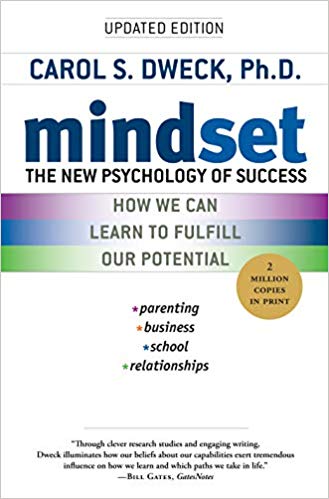

This article is an excerpt from the Shortform summary of "Mindset" by Carol Dweck. Shortform has the world's best summaries of books you should be reading.
Like this article? Sign up for a free trial here .
Although you may not be conscious of them, you have powerful beliefs that affect what you want and whether you get it. In Mindset, psychologist and researcher Carol S. Dweck argues that one belief in particular can determine the course of much of your life, starting as early as your preschool years. It’s important that parents and teachers prioritize a growth mindset for kids.
We’ll cover the characteristics of a growth mindset for kids, why it’s important, and how to cultivate it in this complete guide.
The Importance of a Growth Mindset for Kids
You learn one of two mindsets from your parents, teachers, and coaches — that personal qualities such as intelligence and ability are innate and unchangeable (a “fixed” mindset) or that you and others can change and grow (a “growth” mindset). Regardless of which view dominates your thinking, it shapes your personality and helps or hinders you from reaching your potential.
Achievement in School
Achievement in school starts with mindset. This is one reason why a growth mindset for kids is so important. Researchers measured students’ mindsets as they transitioned to junior high school, which is a particularly challenging time for adolescents, then followed them for two years.
The students started out with similar grades but after the transition with its new challenges, the grades of fixed-mindset students declined, while those of growth-oriented students improved.
The fixed-mindset students tried to rationalize their poor grades with explanations such as “I’m no good at math” or they blamed the teacher. They viewed the change to junior high as threatening because it could expose them as failures. They protected themselves from failure by not trying (the low-effort syndrome), as the young Juilliard violinist did by not taking her violin to class.
In contrast, the growth-minded students faced the tougher environment by doubling down and working harder. They welcomed the opportunity to learn what they like and might achieve.
Labeling and the Growth Mindset for Kids
While labeling people negatively according to their perceived potential is often inaccurate and can hinder their development, positive labeling and praise can also be detrimental to the growth mindset of children.
Parents and teachers typically try to build children’s self-confidence by praising their ability, but this can be harmful. Praising their ability sends the message that adults value ability and can determine a child’s ability from his or her performance. This is a fixed mindset. Here’s how it plays out.
Researchers gave early adolescent students ten problems to solve, then praised their performance in two different ways: some students were praised for their ability (“You must be smart at this”), while another group was praised for their effort (“It looks like you worked really hard”).
Praising students for their ability pushed them into a fixed mindset. When offered another difficult task that they could learn from, they rejected it, not wanting to show any cracks in their talent by failing. However, the students who were praised for effort (a growth-minded approach) wanted to take on the new challenge.
Researchers then gave all the students new problems, on which they didn’t do well. The children praised for ability began feeling like failures — they’d been told that their earlier success meant they were smart so now they felt stupid. Their performance steadily declined. In contrast, the students who were praised for effort tried harder and their performance continued to improve.
What’s more, when asked to write a report on the experience, almost 40 percent of the children praised for their ability lied about their performance. Telling children they were smart hurt their performance and turned them into liars.
How to Develop a Growth Mindset for Kids
Parents want to help their kids to succeed in school and life, yet their comments, actions and attempts to be helpful often send the wrong message. This doesn’t encourage a growth mindset for kids.
Words and actions from adults tell young children, students, and athletes what to think about themselves. They can convey a fixed-mindset message that children’s traits are permanent and they’ll be judged for them. Or they can convey a growth-oriented message that children (and all people) are continually developing and adults are committed to helping them in this process.
Children are extremely sensitive to these messages. They’re concerned about how they’re being tested/judged and what will happen if they fall short.
Kids Hear Messages Constantly
Children with fixed mindsets hear judgment from their parents — it feels as though their abilities are always being measured. This is why it’s important to cultivate a growth mindset for kids.
To understand children’s thinking, researchers asked them several questions. Here are the responses from both the fixed-minded and growth-oriented kids.
Question #1: Imagine that your parents are happy when you get a good grade. Why would they be happy?
- Fixed-minded children responded along the lines of: “They were happy to see I was smart.”
- Growth-minded children said a good grade meant they’d buckled down and worked hard.
Question #2: Imagine that your parents talked with you about your performance when you did poorly. Why would they do this?
- Fixed-minded children responded that their parents probably were worried that they weren’t smart, that bad grades might mean they weren’t smart.
- Growth-minded children said their parents likely wanted to teach them better study methods for the future.
Question #3: Imagine your parents were upset when you didn’t share. Why would they feel this way?
- Fixed-minded children responded that their parents thought the behavior showed they were a bad person.
- Growth-minded children said their parents probably wanted to help them learn and get along better with other kids.
Normal kids often misbehave (actually, every three minutes) — it can be an opportunity either to judge them as having failed or to help them grow. Responding the right way can help foster a growth mindset for kids.
Children pick up these lessons from an early age, even as toddlers. They learn either that mistakes merit judgment and punishment or they can bring suggestions and help for how to do better. Teaching rather than judging is what helps children learn.
Kids Pass On Messages
Children are eager to pass on things they’ve learned. This includes messages from either mindset.
For example, researchers asked children what advice they’d give to a child who was having trouble with math. Children with a growth mindset said they would advise the child to read the problem again, think harder, or maybe ask the teacher for help. Children with fixed mindsets had no help to offer since they viewed ability as a fixed trait. For instance, one child just said, “I’m sorry.”
Messages about Success: When Praise Hurts
When children do something well, most parents want to encourage them or build their confidence, but often they’re not helping the way they think they are. Here’s how many parents respond — and what their kids hear:
- “Wow, you learned that fast; you’re really smart.” What the child hears: If you don’t learn fast, it means you’re dumb.
- “Look how smart you are — you got an A without even studying.” What the child hears: If I have to study, it means I’m not smart.
- “Look at that artwork — You’re the next Picasso.” What the child hears: If I draw something difficult and fail, they’ll see I’m not really a talented artist. I’d better not take the chance.
These examples show that praising children’s intelligence hurts their motivation and performance. Children getting fixed-mindset praise develop resistance to difficult challenges that might show they’re not so smart or talented. If they try and fail, they further lose motivation and confidence. They believe the message that their performance — success or failure — reflects who they are: If success means they’re smart, failure means they’re dumb. A growth mindset for kids involves understanding that their identity isn’t based on what they do.
The best way for parents to develop a growth mindset for children and help their children build confidence is to teach them to welcome challenges, to want to understand mistakes, to enjoy effort, and to continually look for and try new learning strategies.
How to Praise Children
The research findings on the de-motivating effects of praise don’t mean praising children is bad and we shouldn’t do it. Children love praise and need adult approval. The key is to avoid praise that judges their intelligence or ability, which implies you’re proud of them for an inherent trait rather than for their effort and improvement.
Applying a growth mindset, praise them for what they’ve achieved through good study strategies, practice, and persistence. Show interest in how they succeeded or improved, in their efforts and choices. For instance, you might comment, “You really studied hard and it paid off. I can see how much you improved. Outlining the important points was a good strategy.” Or, “It’s great that you kept trying different ways of solving that math problem until you got it.” Your growth mindset will help create a growth mindset for kids.
For a student who worked hard and didn’t do so well, a helpful response would be: “Everyone learns differently. Let’s try to find a way that works for you.” (This approach is especially helpful for children with learning disabilities.) Or, “I like your effort. Let’s work on it some more and figure out where you’re having trouble.”
For a student who did something quickly without mistakes, avoid praising speed and perfection, which will get in the way of tackling challenges. It would be more constructive to say something like, “You finished that assignment so quickly that it must have been too easy. Let’s try something else that you can really learn from.”
Sometimes parents use growth-oriented language with their children, but then undercut it by expressing judgments (fixed-mindset statements) about other people, which the kids overhear. For instance, they might remark, “Some have it and some don’t” or “What a lame-brain.” When children hear things like this, they wonder whether those judgments apply to them too. Remember, they’re always listening. Work on your own growth mindset to foster a growth mindset for kids.
Teachers also can easily fall into the trap of praising children in ways that kill motivation. For example, praising great mathematicians as geniuses is a subtle reference to a fixed mindset. It would be better to describe mathematicians as people who developed a passion for math, worked at it, and made big discoveries.
Reassuring Children
When children are preparing to take a challenging test, it’s natural for parents to want to reassure them by saying something like, “You can do this — you know you’re smart.” This usually has the opposite effect of raising the stakes and making them even more afraid of failing. Instead, sympathize with the pressure they feel for potentially being judged. Reassure that you’re not judging them —you care about their learning, and are proud that they’ve worked hard and continued to improve. This is important for developing a growth mindset for kids.
Messages About Failure
Being careful about how we talk about and react to failure is also important in fostering a growth mindset for children. Society tells parents that the way to boost children’s self-esteem is to protect them from failure — for instance, by minimizing a loss or blaming the coach or teacher. This might make children feel better temporarily, but it’s harmful in the long run because they don’t learn to handle life’s inevitable setbacks. They react poorly to feedback, saying it undermines their confidence, and want only to hear about how talented they are.
Growth-minded parents take an interest in their child’s failure, seeing it as an opportunity to learn. They don’t get upset or concerned about the child’s ability, or whitewash the failure.
Imagine how you might respond when your nine-year-old daughter, a budding gymnast, performs reasonably well at her first gymnastics meet but doesn’t win a ribbon. She’s crushed because she was confident she’d win. Here are typical, but fixed-mindset, ways to console her:
- Tell her you thought she was the best (this is a lie and she knows it).
- Tell her the judges were unfair and she should’ve gotten a ribbon (this blames others).
- Tell her gymnastics isn’t that important (sends the message that if you’re not great at something new immediately, it’s not worth pursuing).
- Tell her she has the talent and will win next time (talent will get you where you want to go).
- Tell her she didn’t deserve to win because she didn’t practice enough (this could be growth-minded and helpful, if it were said in a different way).
Here’s how a growth-minded father actually responded in the above scenario. He told her he understands how disappointing it is when you have high hopes and do your best but don’t win. However, he also pointed out that she hadn’t really earned a win yet, since she was just starting in gymnastics and had a lot to learn. Other girls on the team had worked harder and longer. She’d have to do the same if she really wanted to excel. He told her that doing a sport just for fun is fine too, but excelling requires a higher level of commitment. With this feedback, the girl worked harder, especially on weaknesses, and won five ribbons and was overall champion at a bigger competition. This is the power of developing a growth mindset for kids.
How to Give Constructive Feedback
Everyone thinks the criticism they give their children is constructive. But while they intend it to be helpful, often it isn’t. To be constructive, criticism must help a child fix something or do something better. Most often, what they hear from parents isn’t constructive — it’s judgmental.
For example, when a child does incomplete or sloppy work, a frustrated parent might say, “You mean this is all you can do? Are you stupid or lazy?”
Instead, constructive or growth-oriented criticism would sound like, “It upsets me when you don’t finish an assignment. When can you finish this?” Or, “This looks like an assignment that requires a lot of concentration and effort. Let’s talk about how you apply concentration skills.” This is the language children need to hear to develop a growth mindset for kids.
Discipline
When parents judge and punish children, they’re usually trying to teach them something — but children may learn an unintended lesson. For instance, when parents punish a child for doing something wrong (making a bad decision), they’re teaching the child not to go against the parents’ rules and wishes. Instead, what they should be teaching is how to think through a situation and make a better decision next time. Growth-oriented parents set high standards and teach children how to meet them rather than judging and punishing them for falling short.
Extreme Expectations
It’s natural for parents to have high aspirations for their children, but sometimes parents allow their desires to take precedence over what’s best for the child or what the child wants. Having high but not extreme expectations is part of developing a growth mindset for kids.
For example, Mark was exceptional in math and wanted to go to Stuyvesant High School for its advanced math curriculum. But his parents made him go to a different school because they’d heard that it would be hard for him to get into Harvard from Stuyvesant. They didn’t care about his interests, only about theirs. They wanted him to succeed, but on their terms. Their message was, “We’ll love you only if you go to Harvard.”
Many children pick up this type of message. Researchers studied children age six to college-age and found that those with fixed mindsets believed they had to fulfill their parents’ expectations in order to be loved and respected.
John McEnroe’s father put tremendous pressure on him to excel at tennis when he discovered the boy was good at it. As a result of the pressure, McEnroe didn’t enjoy playing tennis. He liked being at the top for the money and fame, but he never liked the sport.
In contrast, Tiger Woods’ father, although ambitious, fostered his son’s love of golf and raised him to focus on growth and learning. He once said he’d have been happy if his son had chosen another occupation, such as being a plumber, as long as he applied himself.
When parents force fixed-mindset ideals and aspirations on their children, they eliminate any room for failures or for their child’s individuality. However, when they adopt a growth mindset and encourage their children’s development of interests or passions, neither will be disappointed.
———End of Preview———

Like what you just read? Read the rest of the world's best summary of "Mindset" at Shortform . Learn the book's critical concepts in 20 minutes or less .
Here's what you'll find in our full Mindset summary :
- The difference between a growth and a fixed mindset
- How a fixed mindset keeps you back throughout your life: education, relationships, and career
- The 7 key ways to build a growth mindset for yourself






